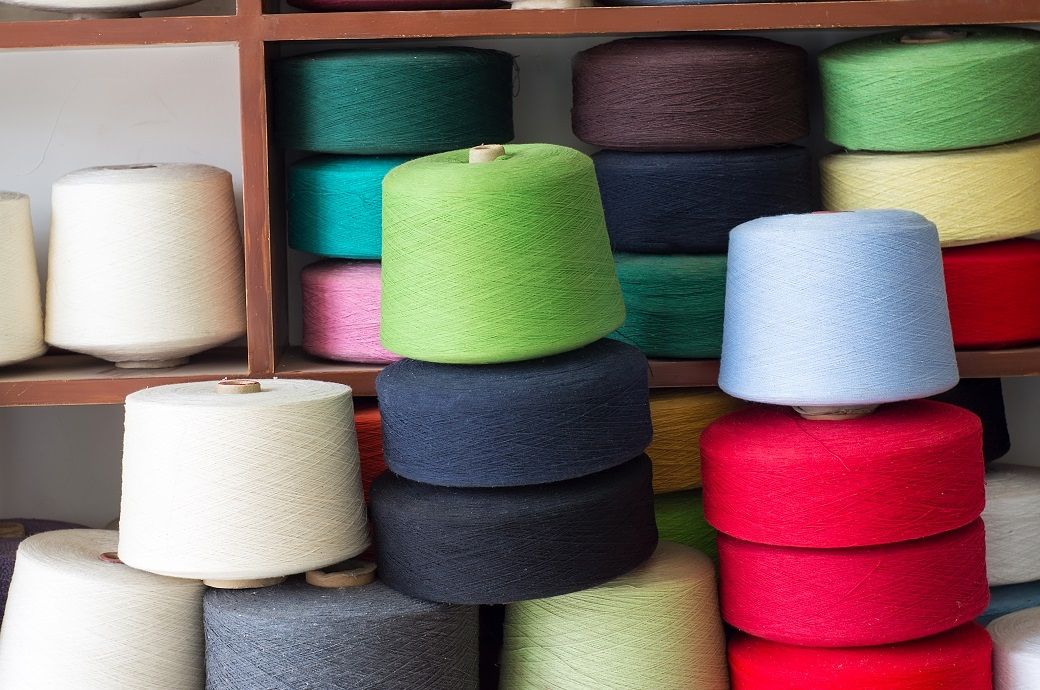
Polyester-cotton yarn prices in Ludhiana rose by ₹2 per kg, recovering from last week’s decline. The increase was attributed to improved demand at lower price levels. Polyester yarn prices, however, remained stable. Overall, the market witnessed subdued demand for man-made and blended yarns due to global trade tensions and prevailing uncertainty. A trader from Ludhiana told Fibre2Fashion, “PC yarn prices recovered after a sharp fall last week. However, demand for PC and polyester yarn remained sluggish. Buyers are hesitant to place fresh orders. The US tariff could dampen exports of garments, fabrics, and yarns.”
In Ludhiana, 30 count PC combed yarn (48/52) traded at ₹204-214 (approximately $2.35-2.47) per kg (GST inclusive); 30 count PC carded yarn (65/35) at ₹192-202 (approximately $2.22-2.33) per kg; 20 recycled polyester yarn at ₹114-120 (approximately $1.32-1.38) per kg; 30 count polyester spun at ₹153-163 (approximately $1.77-1.88) per kg (GST inclusive); recycled polyester fibre (PET bottle fibre) at ₹80-82 (approximately $0.92-0.95) per kg; and virgin polyester fibre ₹100 (approximately $1.15) per kg.
Surat’s polyester yarn market also saw weak demand last week. Various polyester yarn types were traded at previous levels. According to market sources, buyers preferred to remain on the sidelines due to concerns about the tariff issue. There is apprehension that if garment exports to the US slow down, demand for fabric and yarn will also suffer. Domestic demand remains muted, although local buying could pick up in the coming week.
In Surat, 30 count polyester spun yarn was traded at ₹144-145 (approximately $1.66-1.67) per kg (GST extra); 40 count poly spun yarn at ₹157-158 (approximately $1.81-1.82) per kg; 50/48 fully drawn yarn (FDY) at ₹115-116 (approximately $1.33-1.34) per kg; 75/72 FDY at ₹105-106 (approximately $1.21-1.22) per kg; and 75 bright yarn at ₹107 (approximately $1.23) per kg.
A similar trend was observed in the viscose yarn markets of Surat and Mumbai. Viscose yarn prices remained steady, although demand continued to weaken. Buyers are purchasing only to meet immediate requirements. Viscose yarn prices will also depend heavily on the US dollar–Indian rupee exchange rate, which has seen wild fluctuations since the tariff hike. Imported viscose yarn prices may be volatile in the coming weeks, discouraging purchases by the weaving industry.
In Mumbai, imported 30 count viscose vortex yarn was priced at ₹203-207 (approximately $2.34-2.39) per kg; and local 30 count ring-spun viscose yarn at ₹204-209 (approximately $2.35-2.41) per kg in this market.
In Surat, 30 viscose compact yarn (local) was sold at ₹218-220 (approximately $2.52-2.54) per kg (GST extra) and 30 viscose vortex yarn at ₹204-205 (approximately $2.35-2.37) per kg.
In north India, cotton prices declined by ₹20 per maund of 37.2 kg following a drop in ICE cotton. The bearish trend in global cotton prices weighed on domestic prices. Spinners are already cautious with fresh purchases due to the uncertainty brought about by increased US tariffs. Traders noted that despite the bearish sentiment, the domestic cotton outlook is not entirely negative due to lower production and significant procurement by the Cotton Corporation of India (CCI). Nonetheless, US tariffs have dampened market sentiment and may disrupt regular trade activity.
Cotton arrivals in north India stood at 5,500 bales of 170 kg—comprising 200 bales in Punjab, 2,500 in Haryana, 2,000 in upper Rajasthan, and 800 in lower Rajasthan. In Punjab, cotton was priced between ₹5,570 and ₹5,580 (approximately $64.27–64.38) per maund of 37.2 kg, while in Haryana, prices ranged from ₹5,450 to ₹5,480 (approximately $62.88–63.23). In upper Rajasthan, cotton fetched ₹5,570–₹5,590 (approximately $64.27–64.50) per maund. In lower Rajasthan, prices were between ₹53,100 and ₹54,200 (approximately $612.67–625.37) per candy of 356 kg. Seed cotton was priced at ₹7,200–7,400 (approximately $83.07–85.38) per quintal of 100 kg.
ALCHEMPro News Desk (KUL)
Receive daily prices and market insights straight to your inbox. Subscribe to AlchemPro Weekly!